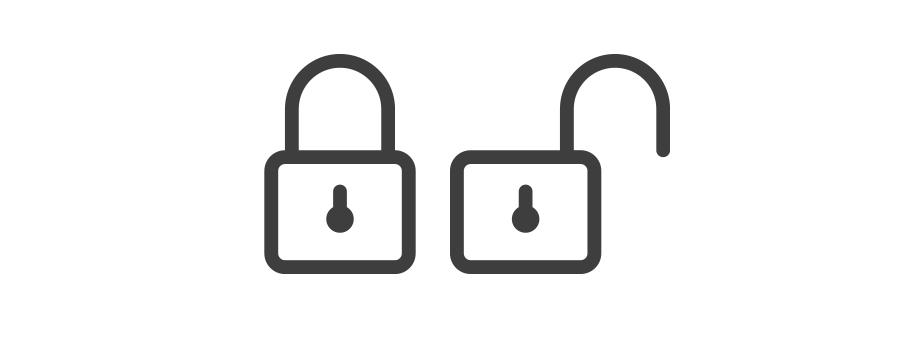
Passwords, why they need more of our attention.
Passwords, they need more of our attention. We are now living in an age where having the ability to access our data online has become a necessity. The blending of your online and ‘real’ life isn’t out of the ordinary. So why aren't we taking passwords seriously? Ofcom have reported that time spent online has doubled in the last decade (2013), with 16-24-year-olds now spending nearly 30 hours a week online. When you consider that for most people, a full-time working week is around 40 hours, that’s quite a significant amount of time. With so much of our lives online, the data that we store not only becomes precious to the user but, to other people as well. We’re constantly seeing the world change, even more so in the last year.
Our passwords are the first line of defence against hacking and online identity theft. Passwords have become an often annoying part of life but, for the most part, not something a lot of us put much thought in to. In actual fact, 10,000 of the most common passwords include 12345, QWERTY & 87654321, which can gain access to up to 98% of online user accounts (TeamsID). With a statistic like that, hopefully, you can see that something as simple as being more creative with your password can significantly lower your chances of being hacked.
By not taking the time to create a secure password, you are putting your information at risk. The question to ask yourself is, how quickly could this password be guessed or hacked? Primarily that is down to the complexity of the password. Creating a complex password is actually far simpler than you may think and there are numerous ways of going about it.
CNET for example, have some great tips for creating a strong password. By creating a phrase or sentence, and then taking the first letter of each word is one I have used myself. So for example,’Derby County are going to gain promotion in 2017!’ (I know… but humour me). My password could then be ‘DCagtgp2017!’. Another good option is to use a password generator, a useful one I have found is passwordgenerator.net. What generators do, is create a completely random password that is in no way associated with you, and with the help of a password manager, you won’t even have to remember it. Some password managers even have secure password generators built in.
Even back in 2013, it was noted that 55% of adult internet users admit they use the same password for most, if not all of their online accounts. By not creating unique and secure passwords for each login, your other accounts are open to attack if your password is compromised on one site. If a ‘bad hombre’ can gain access to website A, then he can gain access to website B, C and D, with no work at all, they’ll just re-use your password the same way you have. Again, a good way to protect and manage multiple passwords is a password manager application.
Some password managers are better than others, some being far more comprehensive. A password manager means you no longer have to keep track of your now longer, more complex and secure passwords by memorising them, or worse, writing them down. (Norton have stated that 40% of online users in 2011and 2012 wrote down their password). Good password managers work across all of your devices, so you are never without your password at work, on your home computer or out and about on your mobile device. PCMag have compiled a list of the best current password managers, also detailing the features that are most important for protection and management. One that isn’t on this list is Keychain for Apple devices. Built in to the MacOS, Keychain is a great free password manager that (if you’re in the MacOS/iOS ecosystem) is also accessible across all devices.
This isn’t to say that there are no downsides to password managers, as they aren’t themselves entirely immune from attack. For example, there was a hack that infiltrated Lastpass not long ago. In that particular case, thankfully the majority of accounts were safe, and this was mostly due to strong master passwords. Which only goes to show, taking the time to create a strong password can really help avoid making your personal data the jackpot for hackers.
Follow us on Twitter.
Email us at info@krcs.co.uk
Call us on 0115 9851797
 12 months interest free on any Mac over £1,000.
12 months interest free on any Mac over £1,000.
No Comments yet. be the first to comment.